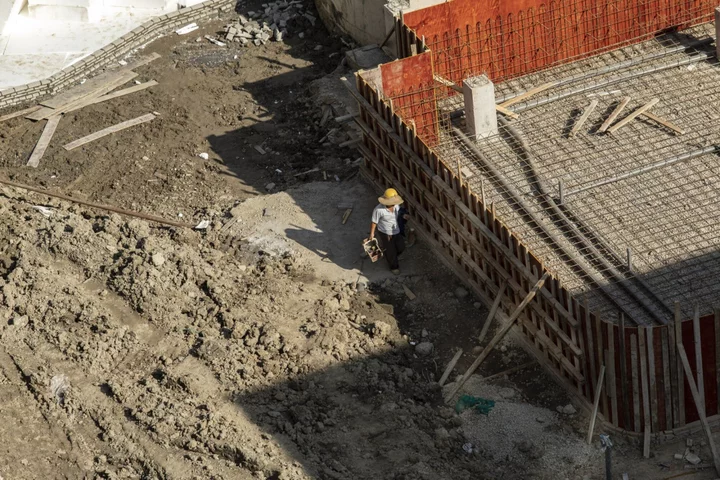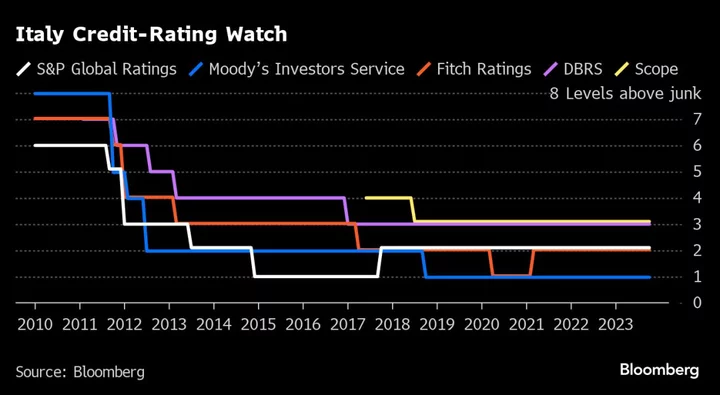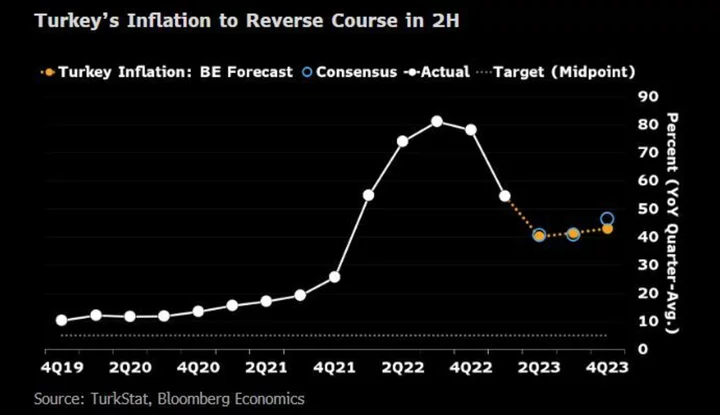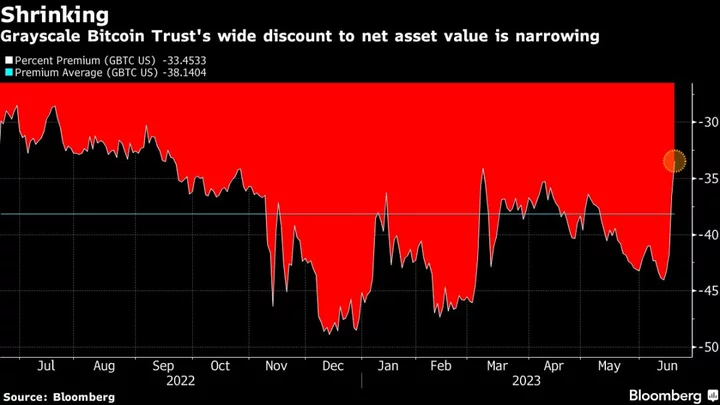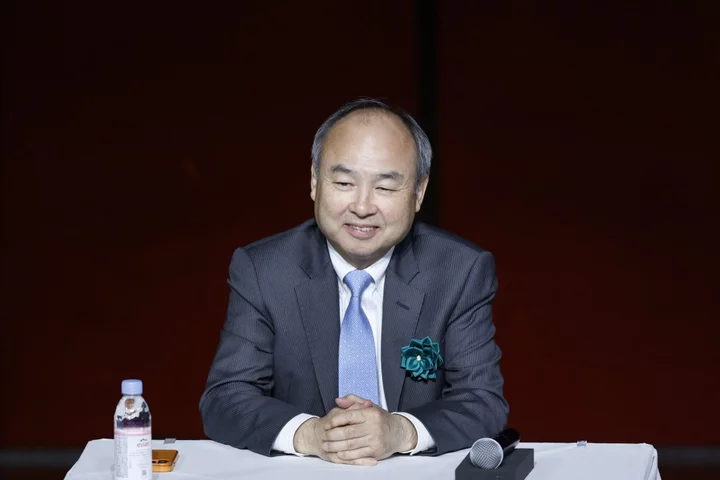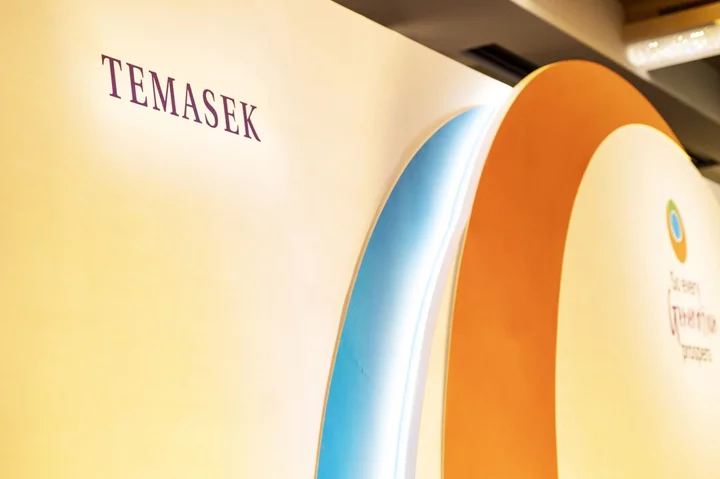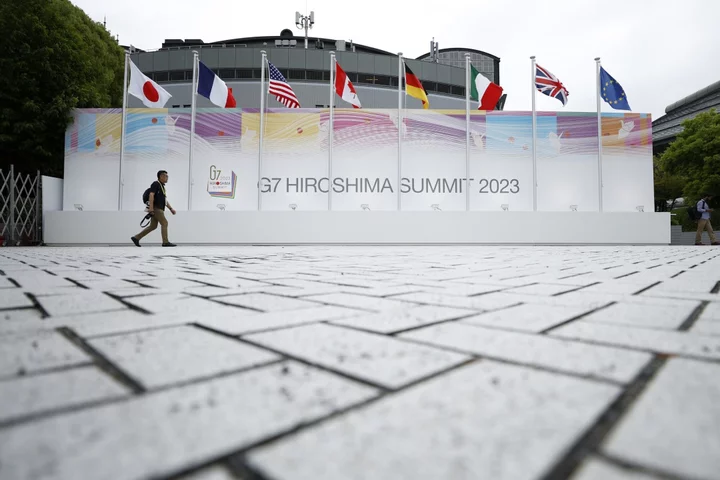Chinese developers’ bonds and shares gained after authorities began drafting a list of 50 real estate firms that would be eligible for financing, the latest move by Beijing to support the embattled property sector.
A Bloomberg gauge of China developers gained as much as 7.6% in early trading, poised for the biggest increase since September. Sunac China Holdings jumped as much as 27%, leading the sector’s gains, while Seazen Group Ltd. and Agile Group Holdings Ltd. each advanced more than 10%.
The so-called white list may help alleviate fears of further contagion in China’s property sector, where even state-backed builders haven’t been immune from funding troubles. It may also address long-standing worries among investors over less favorable financing conditions for private developers.
Longfor Group Holdings Ltd.’s 3.85% note due 2032 rose 4.2 cents on the dollar Monday to 42 cents, while Seazen’s 4.8% bond due 2024 climbed 3.4 cents to 35.4 cents. Both were poised for their biggest gains in almost two weeks, though they’re still trading at distressed levels. China Vanke Co.’s 3.5% notes due 2029 rose another 0.4 cents to 58.8 cents on the dollar on Tuesday morning after climbing 5.9 cents Monday.
China Vanke, Seazen and Longfor are among companies that have been named in a draft of the funding list, people familiar with the matter said, asking not to be named because the information is private.
Read more: China Drafts List of 50 Property Firms Eligible for Funding
The list, which includes both private and state-owned developers, is intended to guide financial institutions as they weigh support for the industry via bank loans, debt and equity financing, people said. It couldn’t be determined which other developers were included on the draft list.
The move may help boost confidence toward some developers but is unlikely to mark the end for developer defaults, according to JPMorgan Chase & Co. analyst Karl Chan.
“We do not think a whitelist alone can prevent a company from defaulting on bonds,” Chan wrote in a note. “Directionally this would be positive as it should enhance confidence from both homebuyers and banks, but if property sales of a non-SOE deteriorate substantially, we believe most banks may still be reluctant to extend support, as a whitelist may likely only serve as a ‘reference.’”
Chan cited Country Garden, which received financing support from authorities and banks but still failed to avoid a default.
(Updates with share moves)

